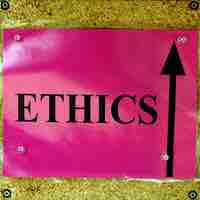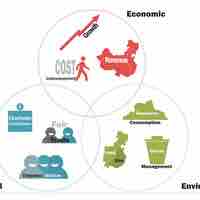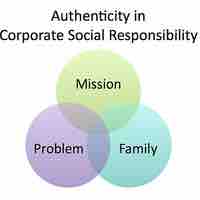Chapter 16
Social Responsibility and Ethics in Marketing
By Boundless
Moral reasoning is the process in which an individual tries to determine what is right and what is wrong.
Ethics are the set of moral principles that guide a person's behavior.

Ethical decisions involve judgments of facts and situations that are subject to interpretation and other influences.
Employees can more easily make ethical decisions that promote a company's values when their personal values match the company's norms.

Culture reflects the moral values and ethical norms governing how people should behave and interact with others.
CSR provides a financial return in the form of lower costs, higher revenue, and returns to investors.

One type of corporate social responsibility focuses on three key dimensions of sustainability—environmental, social, and economic.
According to the ecocentric model of CSR, environmental protection and sustainability are more important than economic or social benefits.
Most arguments both for and against CSR are based on how a company's attempts to be socially responsible affect its bottom line.

Corporate social responsibility is a company's sense of obligation towards social and physical environments in which it operates.

Philanthropic corporate social responsibility involves donating funds, goods, or services.
Social responsibility audits are a process of evaluating a corporation's social responsibility performance.

